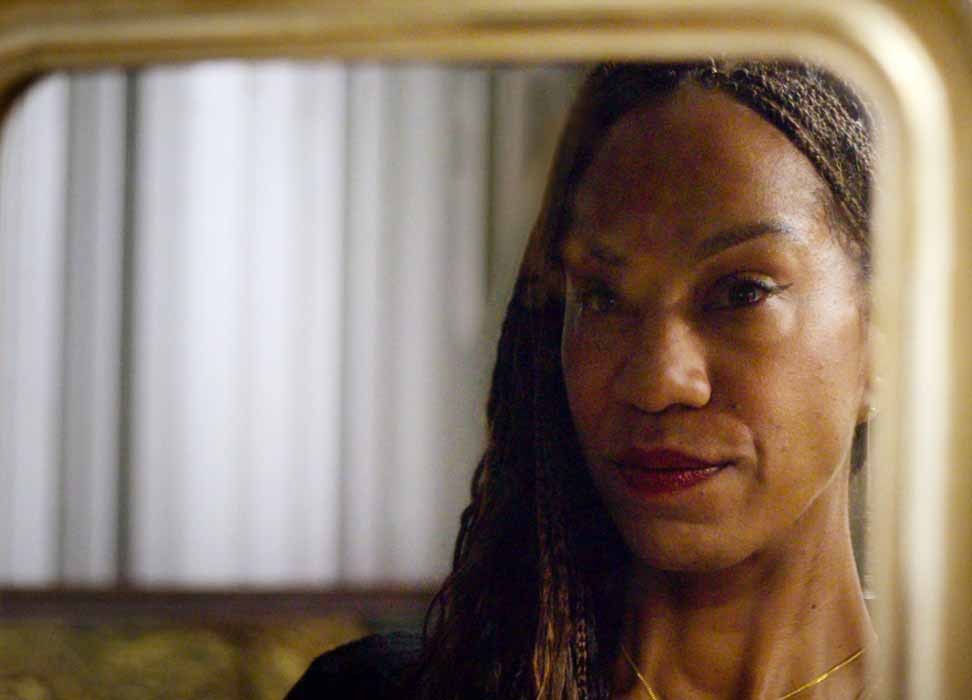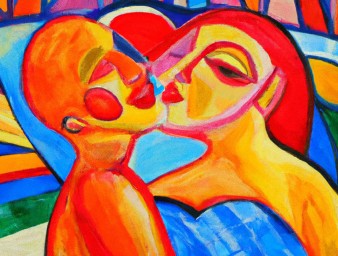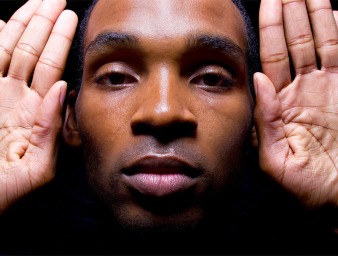Becoming a Black woman in Switzerland

For Rachel M’Bon, being Swiss has meant almost daily finding a way to prove belonging.
When she was a teenager, M’Bon once had three police officers overpower her and arrest her when she entered the building that she was working in all because they were convinced she had broken in, all because she is Black.
“I was born in Switzerland,” the filmmaker said. “Many times I have found myself at the police station because I did not have my papers with me, while my friends just went home. Because they were not Black.”
Despite being born and raised in Switzerland, as a woman of African descent, M’Bon said she has never really been able to fit in. And because of the country’s legacy of neutrality, many Swiss people, and indeed others around the globe, deny the possibility of Swiss racism or discrimination, she added.
“The image of perfection of Switzerland must be deconstructed because it excludes the possibility of speaking about the people who are discriminated against and also denies the possibility of fighting against this history,” M’Bon said. “It is very hard to fight against racism when there is a generalised denial about the phenomenon.”
M’Bon wanted to show this discrimination and how it affected not just her life but other Black women across the country. The filmmaker created Becoming a Black Woman, a documentary that shows the micro aggressions and larger discriminations that Black women living in Switzerland have faced.
“I wanted to find a subtle way so [Black women’s] voices were heard and to reveal to Swiss citizens and those abroad what is going on here, because more often than not there, is the perception that the issues of racism only pertain to other countries,” she said.
“Switzerland, miraculously, has avoided this issue to the extent that it does not have a colonial past,” M’Bon continued. “[This movie] has also the objective of showing that Switzerland is no stranger to racism, quite the opposite.”
The film shows stories of Black women who suffer and fight against racism and discrimination. It also shows how their struggle to find themselves and come to terms with their identity in a society that makes them very aware of their “otherness”.
“[It’s women] who are always at the end of the chain, [depicting only women] was a way of redressing a general neglect of women’s voices”, explained M’Bon.
UN Human Rights report on racial justice and equality, released on July 2021, establishes a four-point agenda to end systemic racism and human rights violations against Africans and people of African descent. It calls on States to stop denying racism and start dismantling it; end impunity and build trust; listen to people of African descent, their concerns and also the solutions they bring to the table; and confront past legacies, taking special measures, and delivering reparatory justice.
M’Bon said the film has started to make a difference. Various screenings of Becoming a Black Woman have attracted diverse audiences, including white young men who after having watched the film later told M’Bon that now they perceived Black women differently and they wanted to learn how they could become allies and fight against their own biases.
“Some of them have become aware of the absurdity of their behaviour. That’s what I wanted to depict through the film, that in the end, what is important is that we are all human beings,” M’Bon said.
The Learn, Speak Up, and Act! Campaign, launched by UN Human Rights on July 2022 is a global call for concrete action against racism, discrimination, xenophobia, and related intolerance. The challenges posed by these problems are not new, and neither are the solutions. What is needed is action – by governments, institutions, groups, and individuals, particularly young people.
“We cannot have a George Floyd every week so that people react,” M’Bon said. “So it is important to have these campaigns. For me, it is key to reach young people and raise awareness amongst them, because they are the adults of tomorrow. It is also important that politicians take a clear stance. One must be able to infiltrate power and daily life with messages and information, and little by little develop strategies that will help people realise that everybody would win if we find solutions that allow a whole society to live in equality.”
A special screening of Becoming a Black Woman by Rachel M’Bon and Juliana Fanjul, will take place on September 20 at 18:30 at Cinerama Empire, Rue de Carouge 71, in Geneva, as part of Ciné ONU.
After the screening, there will be a discussion on “Dismantling systemic racism – Learn, Speak Up and Act!” with Rachel M’Bon, Mona Rishmawi, Chief of Rule of Law, Equality and Non-Discrimination Branch at UN Human Rights, and Yvonne Apiyo Brändle-Amolo, Swiss Parliamentarian, intercultural mediator, film producer, and feminist artist-activist. The entrance is free.



